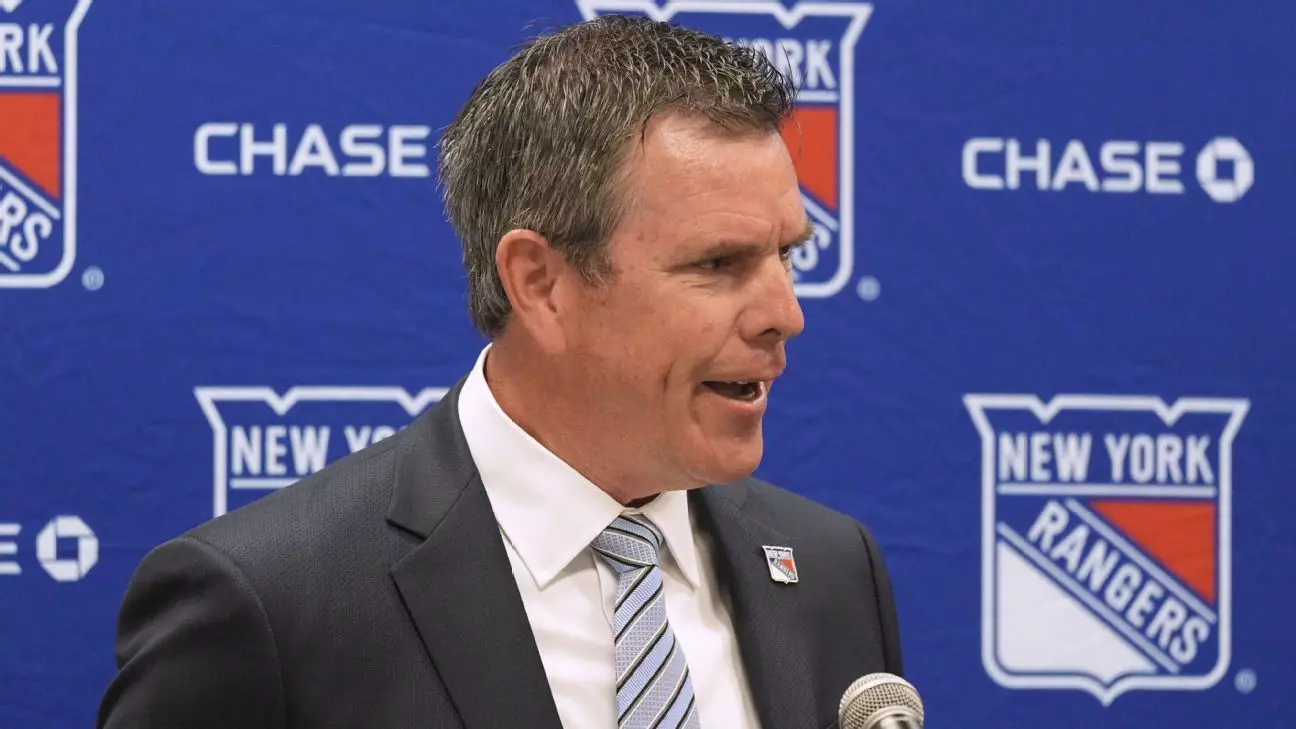The New York Rangers have endured a tumultuous journey from elite triumph to dramatic downturn, and the appointment of Mike Sullivan as the team’s head coach marks a pivotal chapter in this narrative. After securing the Presidents’ Trophy, the Rangers inexplicably faltered, missing the playoffs the following season. Sullivan, famed for his dual Stanley Cup victories with the Pittsburgh Penguins, now faces the monumental task of restoring the franchise to its former glory. His immediate priorities seem crystal clear: to re-establish communication within the team while fostering a culture of accountability and dedication.
In announcing his commitment to the Rangers, Sullivan commented on his immediate interactions with players, signalling the importance he places on open dialogue and rapport. In a league where communication can be the difference between victory and defeat, Sullivan’s enthusiasm for creating a cohesive environment is a promising sign for fans and players alike.
Bouncing Back from Disappointment
The contrast between Sullivan’s past successes and the Rangers’ recent struggles cannot be understated. The team possesses an impressive roster laden with talent—from the electrifying Artemi Panarin to the stalwart Mika Zibanejad. However, undeniable talent alone does not ensure success; it’s about how that talent is managed, nurtured, and deployed on the ice. Sullivan’s role will extend beyond mere tactics; he must instill a collective ethos of competitiveness and resilience that was notably absent last season.
The fall from a formidable power play to a dismal 28th overall ranking necessitates a clear and tactical reorganization. Sullivan’s experience coaching high-caliber players will be crucial in reinvigorating this part of the game, making it a focal point in the team’s quest to reclaim their place amongst the league’s elite. Sullivan’s impressive coaching resume paves the way for a strategic overhaul that emphasizes skill development and collaborative play.
Leadership and Player Development
Sullivan’s understanding of player dynamics will be integral as he works with both seasoned veterans and promising newcomers, like 22-year-old Brennan Othmann and 20-year-old Gabe Perreault. His acknowledgment that different players thrive under unique circumstances showcases his strategic mindset. He recognizes that young talent requires tailored development pathways, whether through time in the American League or opportunities in the National League based on performance.
Sullivan’s respect for meritocracy within the ranks is refreshing in a sports culture often punctuated with entitlement. By establishing that “every player earns their opportunities,” he sends a strong message: talent must equate to work ethic and commitment, a crucial principle for a team eager to redeem itself.
The Power of Personal Connections
Sullivan’s prior associations with the Rangers’ president and general manager Chris Drury, as well as his tenure as an assistant coach with the team, create a backdrop of familiarity that could prove beneficial. The nuanced understanding of each other’s approaches will enable a harmonious alignment of the coaching philosophy with the organizational vision. Moreover, Sullivan’s eagerness to forge personal connections with players signifies an understanding that hockey is not just a game of physical prowess but also one of emotional intelligence.
By engaging with each player on and off the ice, Sullivan aims to cultivate trust and loyalty—a vital ingredient for a winning atmosphere. His past experiences have armed him with the tools necessary to guide talented individuals towards realizing their maximum potential, both individually and collectively.
Looking Ahead: A Promising Future
As Sullivan steps into this demanding role, one thing remains clear: the Rangers have a wealth of potential at their fingertips. With proven leadership, an emphasis on communication, and a personalized approach to coaching, Sullivan is poised to be the catalyst of change that the Rangers desperately require. The fervor surrounding his appointment is palpable—imbued with a sense of optimism that after a dark chapter, a bright future may finally be on the horizon.
Indeed, the Rangers are at a crossroads, and with the right guidance, they could embark on a new journey heralded by resurgence and success.


Leave a Reply